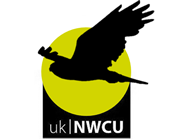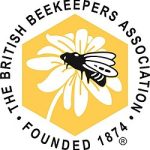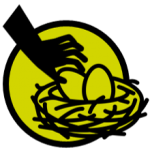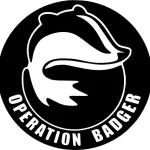Following a trial at Kendal Magistrates (19/11/2014) South Lakes Wild Animal Park Ltd (SLWAP) of Dalton-in-Furness, and its owner David Stanley Gill, 53yrs, were both convicted of three counts of “allowing a species that is not ordinarily resident or a regular visitor to Great Britain in a wild state, which is contrary to the Wildlife and Countryside Act 1981 Sec. 14(1).
In July 2013 there were a number of sightings of Sacred Ibis on the Cumbrian coast in the region of Dalton-in-Furness. Sacred Ibis is not a bird that occurs naturally in Great Britain, in fact it poses such a significant threat to the natural fauna of Britain, it is one of only a handful of species that the government has put an action plan in place to deal with. In France, escapes of around 30 Sacred Ibis from zoos resulted in huge colonies becoming established over a 10 yr period, at one time a population of around 3000 had been established.
Responding to these sightings an expert ornithologist working for Animal and Plant Health Agency (APHA) was deployed to the area to investigate. He established that the birds were originating from SLWAP and the matter was referred to National Wildlife Crime Unit (NWCU) and Cumbria Police.
On 30th October 2013 officers from Cumbria Police, NWCU and APHA executed a search warrant at the zoo. During the visit officers found a large open enclosure housing Sacred Ibis. The officers found only 27 Ibis present, but the zoos records indicated that there should be 36. Officers witnessed and actually filmed birds flying out to the park. The owner of the zoo David Gill who was on site explained that he was aware of the birds getting out and that he was trying to resolve the situation. He indicated that the problem related to birds that had been hatched in 2013 that had not had their wings clipped.
The officers examined copies of the zoos records and found no records any Sacred Ibis breeding at the zoo in 2013. Using ring identification of birds seen in flight and birds photographed in the wild, they were able to show that some of the birds that had escaped were actually born in 2009.
Later that day Gill was interviewed and told that he would be reported for suspected offence. Later that date he shot 13 free flying Sacred Ibis at the zoo.
A former member of staff who gave evidence at court told officers that Sacred Ibis had been flying around the park ever since she worked there, which had been over 12 months.
Gill always maintained he had not known that there had been free flying birds and that as soon as he was aware he had had instructed his staff to resolve the problem.
District Judge Daniel Chalk did not accept Gill’s version of events and pointed out “Some of the birds that were flying out of the park were 4 years old and it appears over a third of the zoo’s Sacred Ibis were capable of flight. I find it inconceivable that you and your staff were unaware”. He acknowledged that birds from the zoo had not started to colonise, but pointed out that there was a serious risk to the British Countryside if the birds became established. He fined SLWAP Ltd, £5000 plus £370 and David Gill was fined £2000 plus £870 costs.
Following the case Andy McWilliam from NWCU who assisted Cumbria Police on the inquiry said, “The threat to our natural wildlife from Sacred Ibis is very really and they could inflict some serious damage on the likes of ground nesting birds. It is imperative that people keeping any potentially invasive species ensure that they are secure and there is no risk of escape. Having free flying Sacred Ibis housed in open enclosures was simply unacceptable”.
Cumbria Police Wildlife Officer, PC Helen Branthwaite who led the investigation said, “This was an unusual and often challenging investigation for us to deal with and I am grateful to all those who assisted throughout. I am satisfied with the outcome and others should note not only the potential risk to our wildlife, but also the potential penalties if the allow this situation to occur”.
The maximum sentence for offences under the WCA 1981 Sec. 14 is 2 years imprisonment.





